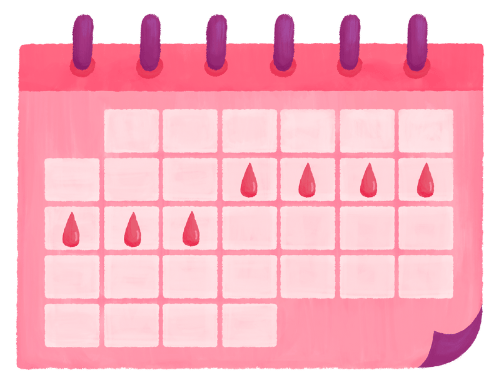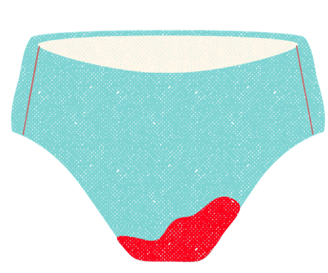What Happens When I Get My First Period?
During puberty our bodies are changing a lot and waiting for our first period can seem really scary. In this article you can find helpful...
PUBERTYPERIODS
vaginalhealth.online
10/7/20233 min read


What Happens When I Get My First Period?
During puberty our bodies are changing a lot and waiting for our first period can seem really scary. In this article you can find helpful info on what to expect and when, to help the waiting game seem a little less daunting.
BY: VAGINAL HEALTH
UPDATED: 05/01/2024
Puberty . Periods
Periods are a natural part of puberty, they involve usually around 5-7 days of vaginal bleeding and most can expect their first period to arrive around the ages of 9 to 17.
Below you can find helpful info and tips on when and what to expect when getting your period:
Menstrual cycle


Formally known as menstruation, the period is the part of the monthly menstrual cycle when we bleed from our vaginas.
But 'What is the Menstrual Cycle?'.
The menstrual cycle typically lasts for about 28 days and is regulated by hormones and changes in the ovaries and uterus.
The period happens in the phase of the menstrual cycle when the body realises that the egg has not been fertalised. The thick lining of the uturus that was grown to support it then sheds and leaves the body via the vagina.
So what happens when I get my period?
You can usually expect your period to arrive between the ages of 9 to 17, not narrowing it down much we know!
But there are a few signs to look out for that usually mean your period is on it's way:
Stomach cramps or back pain
Pinkish discharge
Mood swings
Breast growth
Try to make sure that you're keeping some supplies with you in case it turns up out of the blue though!
When your period first arrives, sometimes you can actually feel it, others you could be completely caught off guard and not even know until you go to the loo. You'll typically find pink, red or brown coloured blood/discharge in your underwear or when you wipe.
Sometimes the bleeding starts slowly on the first day, gets heavier on the 2nd, 3rd & 4th, and then slows down until it stops on day/s 5,6 & 7.
But it's important to remember that everyone is different. Some of us only menstruate for 3 days (lucky!!) whereas others may have a heavy period for over 7 days.
Symptoms & side effects
Unfortunately, there are a range of different symptoms that we can experience before, during and after our periods (as if the vaginal bleeding wasn't enough hey!).
The most common include :
Painful stomach/back cramps
Tender breasts
Mood swings
Nausea
Tiredness
What to use?
There are lots of different products to chose from to manage your menstrual flow, take a look at 'Period Products 101'.
There are some other things you might wanter to consider to ease the symptoms too:
Hotwater bottle
Painkillers
Drinking enough water
Light exercise
Chocolate!
Recognising what's normal
When your period first comes it's obviously going to be a little tricky at first to work out what's normal.
Give yourself and your body time to come to terms with the changes. Using period tracker apps can help us to understand our cycle length and flow.
It is also important to be aware of the signs that things aren't quite normal:
Period lasting over 2 weeks
Extremely heavy flow
Chronic or acute pain
Feeling very unwell
Struggling to cope emotionally


Welcome to the world of menstruating!
Here at VH we're here to assure you that periods are nothing to be embarrassed about!!
Half of the population have one, and although they can be a little uncomfortable, you'll find your 'flow' soon enough ;)
Read more about periods...
vaginalhealth.online
DISCLAIMER!!
All of the information on this website is produced off the basis of recommendation and personal experiences. Although we do our best to ensure information accuracy, we are not health professionals only people with vaginas sharing our stories. Please always do your wider research and consult a doctor or health professional before starting any treatment and making considerable lifestyle changes.
